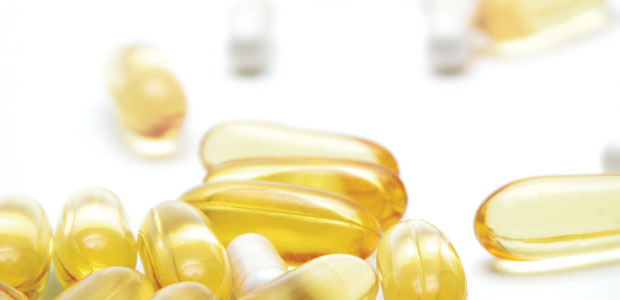Advertisement
Crohn’s Disease
Crohn’s disease is an inflammatory condition that most commonly affects the lower part of the small intestine, although it may be present anywhere within the digestive tube. The inflammation caused by Crohn’s disease can extend deep into the lining of the affected organ. Symptoms, often exacerbated by stressful conditions, include abdominal pain, rectal bleeding, diarrhea, … Continued

Crohn’s disease is an inflammatory condition that most commonly affects the lower part of the small intestine, although it may be present anywhere within the digestive tube. The inflammation caused by Crohn’s disease can extend deep into the lining of the affected organ. Symptoms, often exacerbated by stressful conditions, include abdominal pain, rectal bleeding, diarrhea, weight loss, anemia, and nutritional deficiencies.
Crohn’s disease is one of a number of inflammatory conditions, generally referred to as inflammatory bowel disease, that cause the intestinal tract to change its physical environment.
In a healthy digestive tract, the digestive tube is lined by a covering called a mucous membrane which is protected by over 400 species of micro-organisms. A decrease in these organisms may contribute to various digestive disturbances including inflammatory bowel disease.
Some promising research with natural remedies shows benefits in helping to control the symptoms of this disease.
Probiotics
In a study conducted on children with Crohn’s disease, researchers supplemented with enteric-coated lactobacillus GG tablets twice a day for six months. To monitor their progress, the researchers evaluated changes in intestinal permeability.
Results indicated significant improvement in clinical activity one week after starting the probiotic and was maintained throughout the study. Clinical disease activity at 4 weeks was 73 percent below the starting baseline, and intestinal permeability improvement showed similar results. The study concluded that lactobacillus GG may improve the clinical presentation and intestinal permeability in children with mild to moderate forms of the disease.
In a second study, researchers evaluated the effect of probiotics on tumour necrosis factor, a component in the inflammatory response in Crohn’s disease. Researchers cultured samples from Crohn’s patients’ illeal surgeries with four different bacterial strains.
Tumour-necrosis factor concentrations were measured; the results indicating that release of the inflammatory mediator was significantly reduced in two specimens. These specimens also showed a reduction in another immune modulator, CD4 cells, as well as in the release of tumour-necrosis factor from immune cells along the mucosal lining. The study concluded that supplementation of probiotics showed positive benefits in decreasing the inflammatory response in Crohn’s disease.
Vitamin D
Supplementation with vitamin D also appears to be helpful for individuals with Crohn’s disease. Researchers from Pennsylvania State University found that vitamin D, either from sunshine or from supplementation from the diet, was an important factor affecting the development of inflammatory bowel disease. The study used three groups of mice with symptoms resembling human inflammatory bowel disease. One group was vitamin D deficient, the second vitamin D sufficient, and the last supplemented with active vitamin D.
The results showed that the vitamin D-deficient mice developed diarrhea and a wasting disease while the vitamin D-sufficient mice did not develop either of these conditions. Most interesting was the group supplemented with the active vitamin. These mice had their symptoms significantly improved in two weeks and the supplementation appeared to block further progression of the disease.
Dr. Margherita T. Cantorna, director of the research project, said, “Our experiments show that vitamin D deficiency worsens the symptoms of Crohn’s disease. Treatment with Vitamin D for as little as two weeks lessens the symptoms in mice.”
Fish Oil
Fish oil has also been studied for its impact on inflammatory conditions. Research indicates that supplementing the diet with fish oil provides a significant decrease in inflammatory conditions such as rheumatoid arthritis, Crohn’s disease, ulcerative colitis, and psoriasis.
In a randomized placebo-controlled study, researchers evaluated the effect of fish oil in modulating the inflammatory response in Crohn’s patients. The study divided the subjects into two groups, one using 2.7 grams of fish oil and the other using olive oil for 24 weeks. The fish oil group was also supplemented with antioxidants including vitamins A, C, E, and selenium.
The fish oil group showed increased intake of EPA and DHA into immune cells, a decrease in the activity of inflammatory immune cells, and a decrease in arachidonic acid production, a prostaglandin that increases the inflammatory response. The study concluded that supplementation of fish oil and antioxidants was a positive factor in decreasing the inflammatory response and modulating the immune response in individuals with Crohn’s disease.
You can find these allies in the management of Crohn’s disease at your natural health store.




